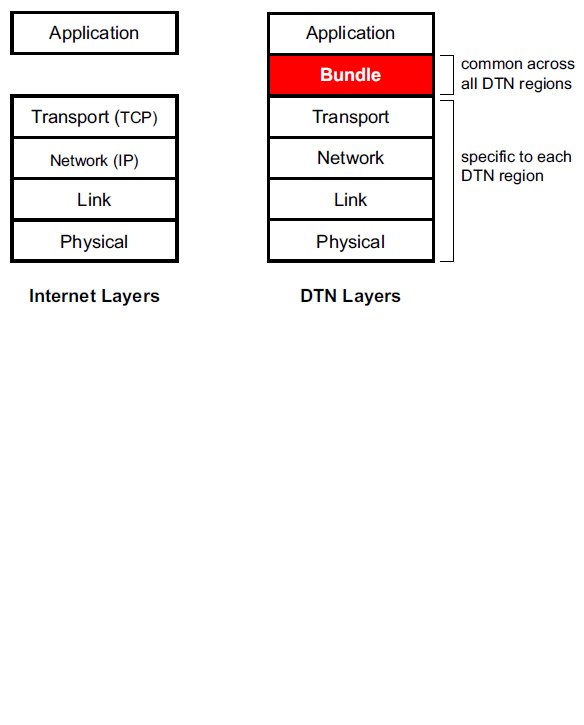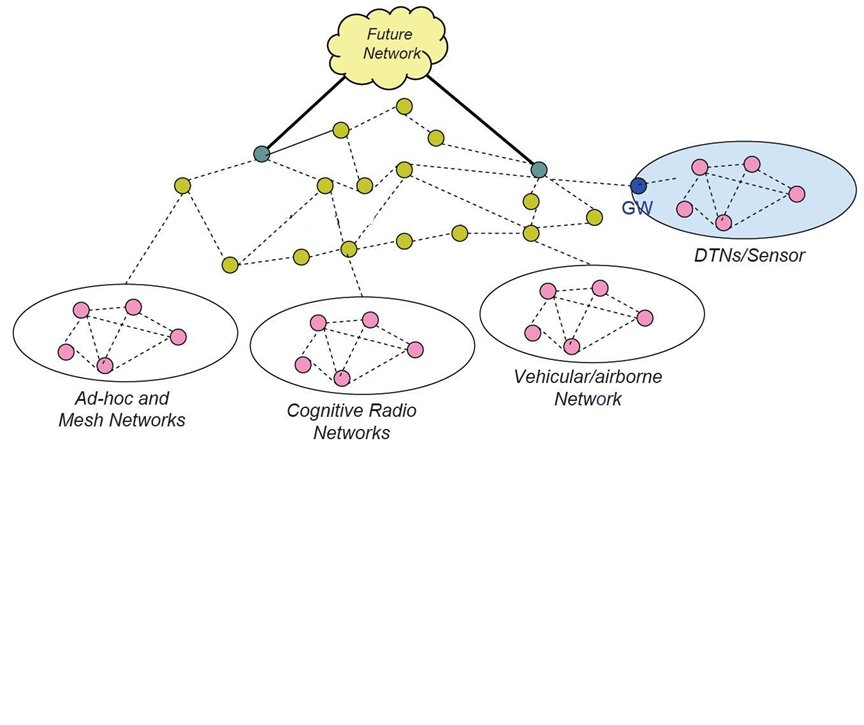DTN
Jump to navigation
Jump to search
Part 1: Introduction
In communication field, networks become more popular and routing protocols face multiple challenges. They have first to minimize delay then maximize throughput.
- Internet vs. DTN DTN routing involves message replication. They are therefore useful to operate over long distances as for telecommunications space 1 for which latency reaches sometimes hours or even days On another hand we have Internet which is based on packet forwarding.
Part 2: DTN Architecture and Future Wireless Internet
- Generalized Architecture
- Space communications as a customer
- Bundle transport without permanent end-to-end paths
- Store-and forward
- Late name resolution
- Custody transfer
- Convergence layer concept
- Routing with different levels of knowledge of network topology, offered load and connectivity graphs over time
Part 3: Application Areas
- Opportunistic/social networking
- VANETs
- Habitat monitoring
- DTN-based Social Network
- Low cost communication solutions
Part 4: Conclusion
Some of characteristics of Delay Tolerant Networks are:
- No end-to-end path
- Intermittent connectivity
- Long delay
- They are also dynamic

